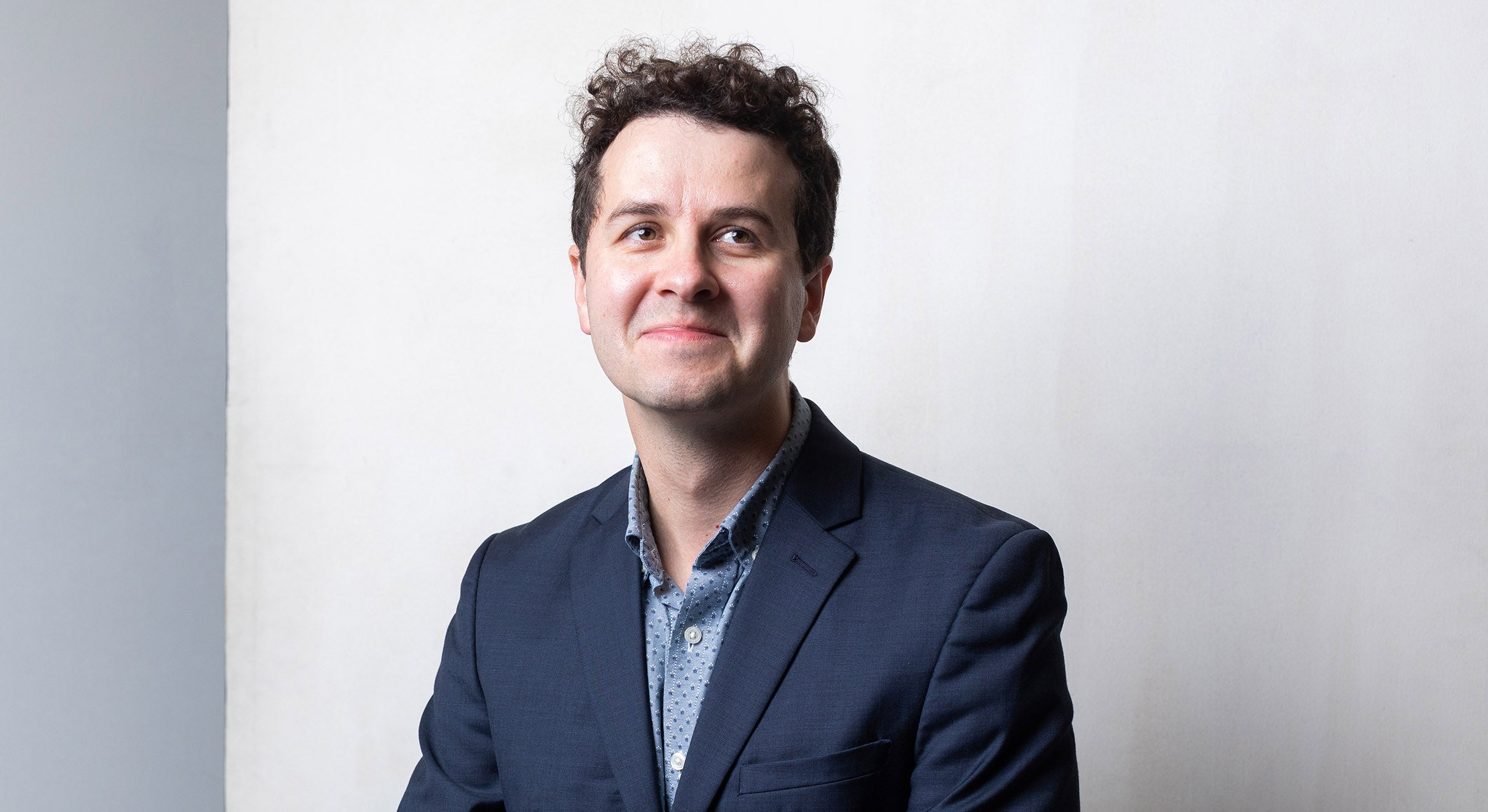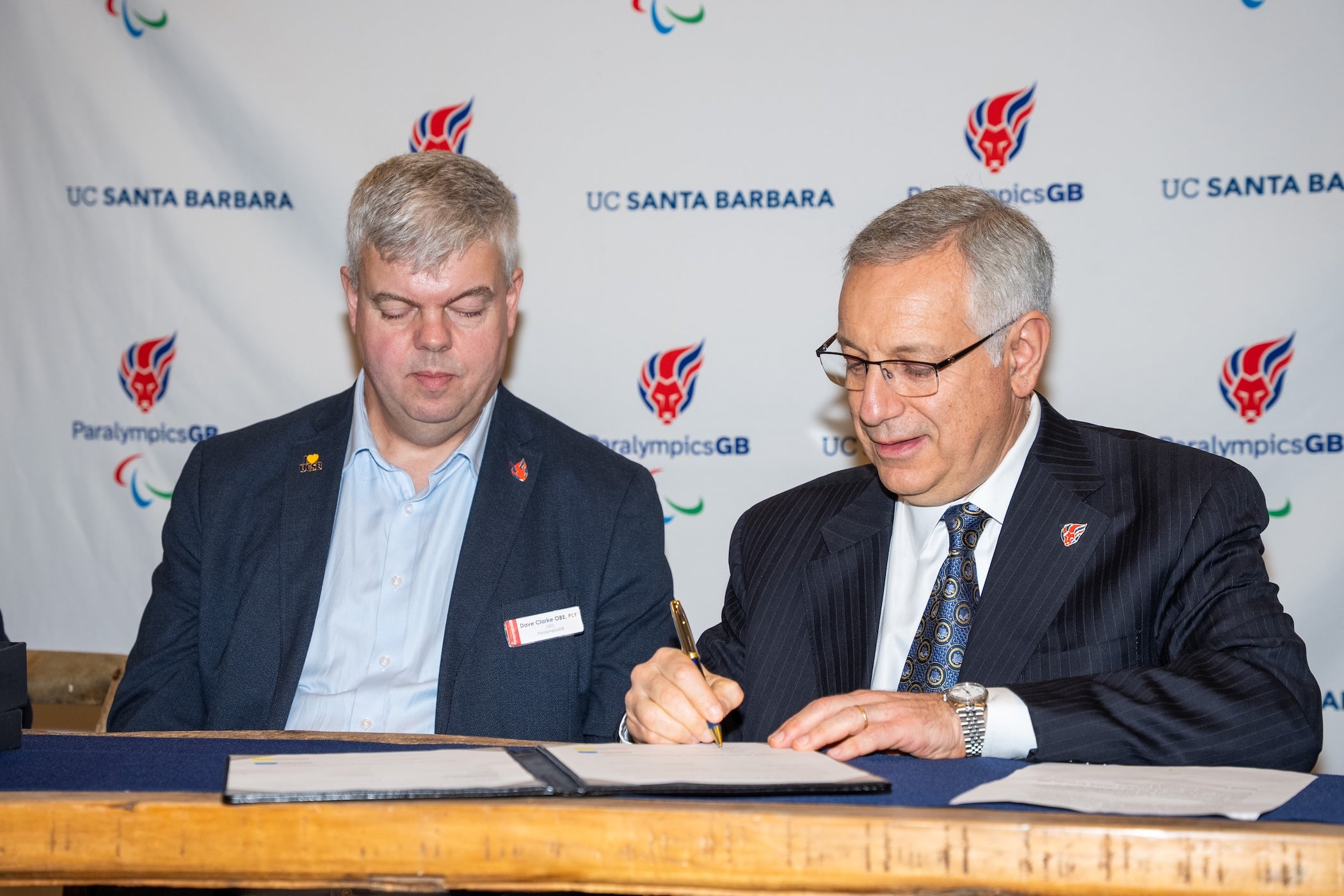Matthew P.A. Fisher, professor of physics at the University of California, Santa Barbara, and permanent member of the Kavli Institute for Theoretical Physics (KITP), was elected a Fellow of the prestigious American Academy of Arts and Sciences for the year 2003, according to a May 5 announcement by the Academy.
"This is exciting news and a wonderful honor for one of our colleagues," said UCSB Chancellor Henry T. Yang. "The American Academy of Arts and Sciences is the oldest learned society in the country, and being elected to membership in it is a significant achievement."
Fisher, a condensed-matter theorist, is known for his fundamental contributions to the understanding of high-temperature superconductors. Regarding this award he said, "I would particularly like to acknowledge many supportive colleagues and bright students here at UCSB for providing such a wonderful atmosphere for creative science. Such awards, while nominally for personal achievements, in reality reflect the collective efforts of so many."
The 2003 class of 187 Fellows and 29 Foreign Honorary Members includes four college presidents, three Nobel Prize winners, and four Pulitzer Prize winners. Among this year's new Fellows and Foreign Honorary Members are Kofi Annan, Secretary-General of the United Nations; journalist Walter Cronkite; philanthropist William H. Gates, Sr., co-chair of the Bill and Melinda Gates Foundation; novelist Michael Cunningham; recording industry pioneer Ray Dolby; artist Cindy Sherman; and Nobel Prize-winning physicist Donald Glaser.
Academy President Patricia Meyer Spacks said, "It gives me great pleasure to welcome these outstanding and influential individuals to the nation's oldest and most illustrious learned society.
Election to the American Academy is an honor that acknowledges the best of all scholarly fields and professions. Newly elected Fellows are selected through a highly competitive process that recognizes those who have made preeminent contributions to their disciplines."
New Fellows and Foreign Honorary Members are nominated and elected by current members of the Academy.
Members are divided into five distinct classes:
I) mathematics and physics; II) biological sciences; III) social sciences; IV) humanities and arts; and V) public affairs and business.
The unique structure of the American Academy allows members to conduct interdisciplinary studies that draw on the range of academic and intellectual disciplines.
The Academy was founded in 1780 by John Adams, James Bowdoin, John Hancock, and other scholar-patriots "to cultivate every art and science which may tend to advance the interest, honor, dignity, and happiness of a free, independent, and virtuous people." The Academy has elected as Fellows and Foreign Honorary Members the finest minds and most influential leaders from each generation, including George Washington and Ben Franklin in the eighteenth century, Daniel Webster and Ralph Waldo Emerson in the nineteenth, and Albert Einstein and Winston Churchill in the twentieth. The current membership includes more than 150 Nobel laureates and 50 Pulitzer Prize winners. Drawing on the wide-ranging expertise of its membership, the American Academy conducts thoughtful, innovative, non-partisan studies on international security, social policy, education, and the humanities.
The Academy will welcome this year's new Fellows and Foreign Honorary Members at the annual Induction Ceremony at the Academy's headquarters in Cambridge, Massachusetts in October.
This honor bestowed on Fisher brings the total of AAAS fellows at UCSB's Kavli Institute to three. The others are David Gross and Joe Polchinski.



